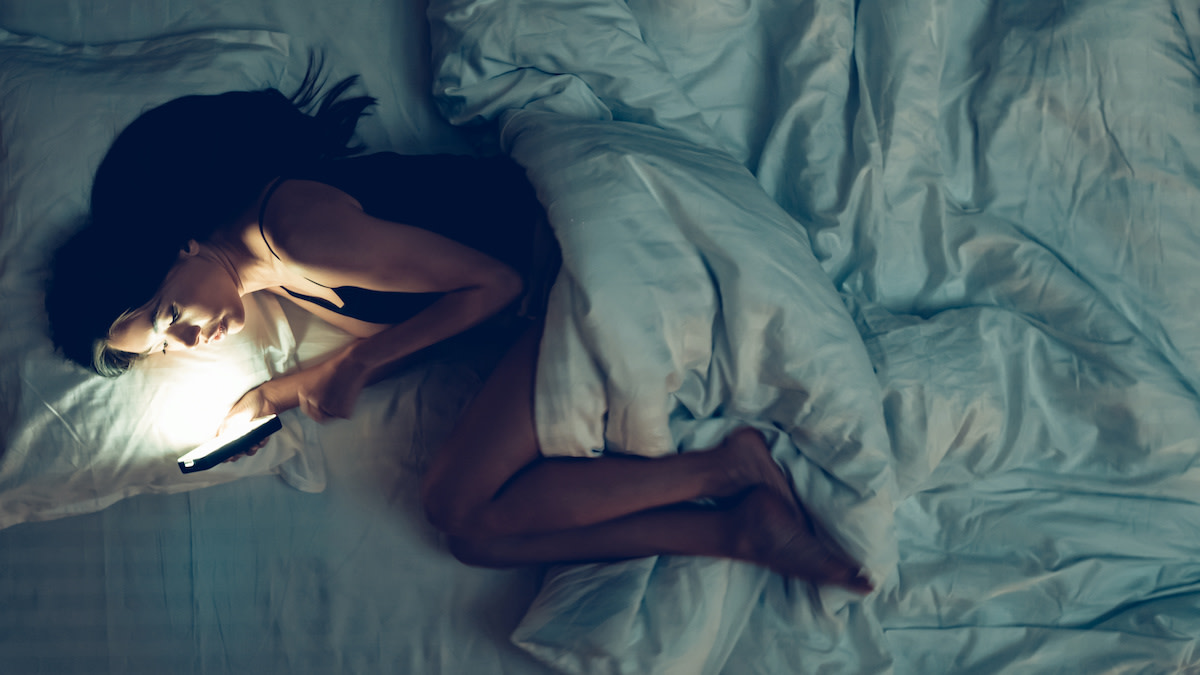Sleep Deprivation: 6 Tips for Avoiding Sleep Deprivation
Written by MasterClass
Last updated: Jun 7, 2021 • 3 min read
Sleep deprivation prevents you from getting the sleep you need to feel rested and refreshed, but there are a number of techniques for addressing the causes of sleep loss.
Learn From the Best
What Is Sleep Deprivation?
Sleep deprivation occurs when you don’t routinely get sufficient sleep at night. Seven to eight hours of quality sleep time is the baseline for most adults, yet the Centers for Disease Control and Prevention (CDC) estimates that one third of American adults suffer from measurable sleep loss. This lack of sleep can lead to disruptions in everyday life, from grogginess and delayed reaction times to serious medical conditions.
5 Causes of Sleep Deprivation
Many factors can prevent you from getting a good night's sleep. These include:
- 1. Sleep disorders: Certain conditions like sleep apnea and restless leg syndrome can interfere with healthy sleep.
- 2. Mental health conditions: Depression and anxiety can be sources of severe sleep deprivation.
- 3. External stimuli: Loud noises, bright lights, and hot temperatures can all prevent you from getting enough sleep.
- 4. Work schedules: Shift work at night can clash with your natural circadian rhythms and trigger sleep deprivation.
- 5. Physical activity: Exercise can inhibit sleep onset if scheduled too close to bedtime.
4 Effects of Sleep Deprivation
The consequences of sleep deprivation can be serious. A person operating on insufficient sleep may face increased risk of the following effects.
- 1. Daytime drowsiness: A poorly rested person can go through the day feeling groggy. This can lead to drowsy driving, car accidents, mental slip-ups, and poor cognition.
- 2. Microsleep: In addition to general drowsiness, a person running on very little sleep can experience microsleep—very short bursts of unconsciousness that feel like blacking out.
- 3. Mood swings: A person overcome by sleepiness may be cranky and irritable, and they may also experience headaches that further sour their mood.
- 4. Memory issues: Poor sleep patterns that cause a person to get less sleep have the potential to affect memory recall.
6 Tips for Avoiding Sleep Deprivation
To ensure you get consistent and sufficient sleep duration, consider the following strategies.
- 1. Stick to a bedtime routine. Sleep difficulties can stem from inconsistent schedules and routines. Improve your sleep hygiene by creating consistent sleep habits and a bedtime routine. This may involve stretching, an evening shower, or a cup of tea.
- 2. Avoid digital screens before bed. The blue light of electronics can mimic the effects of sunlight and prevent your body from entering its natural sleep cycle. Keep digital devices out of the bedroom, and when you must use them before bed, use a blue light filter that keeps the most disruptive light out of your eyes.
- 3. Consider a natural sleep remedy. Supplemental melatonin can help you fall asleep when your routine sleep schedule has been disrupted. Take care to not build reliance on sleep medications that may dampen the restorative effects of REM sleep and non-REM sleep.
- 4. Lower the temperature of your bedroom. A nighttime room temperature of 60 to 67 degrees Fahrenheit signals to your brain that it’s time to sleep.
- 5. Practice mindful relaxation techniques. A bedtime ritual of deep breathing exercises and slow exhales can promote progressive muscle relaxation. Mindfulness can also eliminate tension while allowing your body to drift into drowsiness and get enough hours of sleep.
- 6. Monitor your health conditions. Certain medical conditions, like sleep apnea and restless leg syndrome, can impair sleep onset and deprive you of sleep over the course of the night. Seek medical advice for handling such conditions, and work with your healthcare provider to develop treatment and coping strategies.
Want to Learn More About Catching Those Elusive Zs?
Saw some of the best darn logs of your life with a MasterClass Annual Membership and exclusive instructional videos from Dr. Matthew Walker, the author of Why We Sleep and the founder-director of the Center for Human Sleep Science at the University of California, Berkeley. Between Matthew’s tips for optimal snoozing and info on discovering your body’s ideal rhythms, you’ll be sleeping more deeply in no time.
